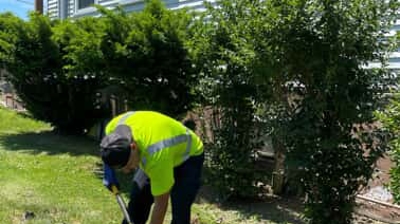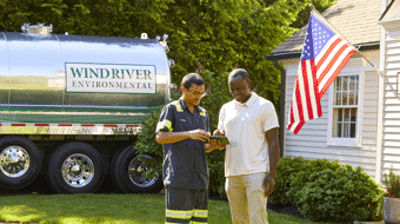Owning or managing a car wash is all about keeping things clean, from the cars you wash to the facility itself. However, one area that often gets overlooked is the car wash pit, the very heart of your operation's drainage and filtration system. Car wash pits capture the dirt, debris, oil, and grime that come off vehicles during the wash process. Without proper maintenance, these pits can quickly become clogged, leading to a host of problems that can interrupt your business, increase costs, and even result in regulatory fines. To keep your car wash running smoothly and avoid costly downtime, it's crucial to stay on top of pit cleaning.
In this blog, we’ll share three essential car wash pit cleaning tips to help you maintain a clean, efficient, and compliant operation.
1. Set a Regular Cleaning Schedule
The most important tip for keeping your car wash pit in top shape is to establish a regular cleaning schedule. It’s tempting to adopt a “clean as needed” approach, but waiting until you notice problems can lead to bigger issues like backups or malfunctions. By cleaning your pit on a consistent basis, you can avoid these problems and ensure the longevity of your equipment.
Car wash pits are designed to capture dirt, sludge, oils, and other contaminants, so they naturally accumulate large amounts of waste over time. If left uncleaned, this buildup can cause blockages in the drainage system, resulting in water backups that could shut down your operation temporarily. Additionally, the more debris that collects, the harder (and more expensive) it becomes to clean the pit when you finally get around to it.
How often should you clean your car wash pit?
- For high-volume car washes, pits should ideally be cleaned every 3 to 6 months.
- Low to moderate-volume car washes can often stretch this out to once a year, but you should always monitor the level of waste in your pit to determine whether more frequent cleanings are necessary.
By sticking to a regular cleaning schedule, you’ll not only avoid potential operational issues but also keep your car wash running smoothly day after day.
2. Use Professional Services for Thorough Cleaning
While it may be tempting to handle pit cleaning yourself or have your staff take care of it, the truth is that professional cleaning services are the best option for a thorough and efficient job. Car wash pits contain a variety of waste materials that can be hazardous, including oil, grease, chemicals, and other contaminants. Handling these materials requires proper equipment and disposal methods, both for safety and for compliance with environmental regulations.
Professional pit cleaning services use specialized equipment, such as vacuum trucks, to quickly and effectively remove sludge, debris, and contaminated water from the pits. These professionals are trained to handle hazardous materials safely, ensuring that your car wash remains compliant with local, state, and federal regulations regarding wastewater disposal.
Additionally, professionals can inspect your pit during the cleaning process. They may spot potential issues, such as cracks or leaks in the pit structure or blockages in the drainage system, that you wouldn’t notice on your own. Catching these issues early can save you from costly repairs or prolonged downtime in the future.
While hiring a professional service might seem like an added expense, it’s well worth the investment to keep your car wash running efficiently and avoid larger, more expensive problems down the road.
3. Dispose of Waste Properly and Comply with Regulations
One of the most critical aspects of car wash pit cleaning is making sure you’re disposing of waste materials properly. The sludge that accumulates in your pit contains oils, chemicals, and other pollutants that can be harmful to the environment if not handled correctly. Disposing of these materials improperly can result in fines, penalties, and harm to your local ecosystem.
In most areas, you can’t simply dispose of car wash pit waste in the regular trash or dump it down the drain. You’ll need to work with licensed waste disposal companies to ensure that all waste is handled according to environmental regulations. These companies are equipped to safely transport and dispose of non-hazardous materials, ensuring that they are processed in an environmentally friendly manner.
Here are some general guidelines to follow:
- Check local regulations: Car wash waste disposal is often governed by local or state environmental agencies, and the rules vary depending on where you are located. Make sure you are familiar with the laws in your area to avoid hefty fines.
- Keep records: Document all waste disposal activities. This not only helps you stay organized but also provides proof of compliance if you’re ever inspected by regulatory agencies.
- Use proper containment: Ensure that any containers or transport vehicles used to move waste are sealed and secure to prevent leaks or spills.
Staying compliant with waste disposal regulations is not just about avoiding fines. It’s also about being a responsible business owner who cares about the local environment and community.
Stay Proactive to Avoid Pitfalls
Car wash pit cleaning may not be the most glamorous part of running a car wash business, but it’s certainly one of the most important. By sticking to a regular cleaning schedule, hiring professional cleaning services, and disposing of waste properly, you can avoid the costly issues that arise from neglected pits.
Think of car wash pit maintenance as an investment in the long-term success of your business. Clean pits mean fewer backups, smoother operations, and a car wash that customers can rely on for years to come. Keeping up with these three essential tips will help you maintain a clean, efficient, and compliant car wash, allowing you to focus on what really matters—delivering sparkling clean cars to happy customers!


.2410080800477.jpg)


